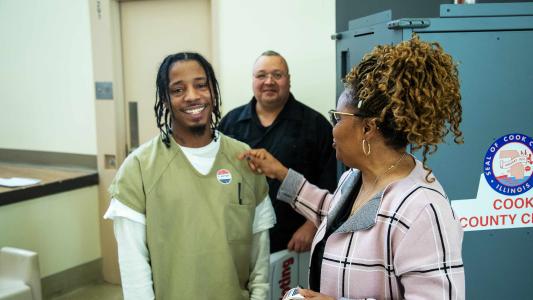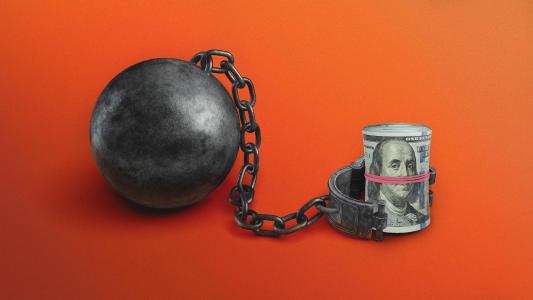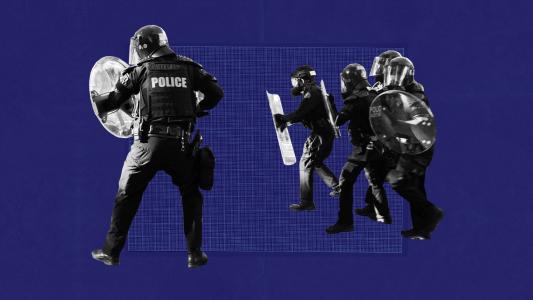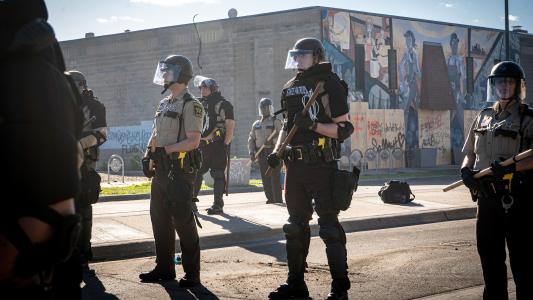Fixing Justice
Robot lawyer helps people connect with incarcerated loved ones
DoNotPay’s robot lawyer can now help people write and send letters to inmates without worrying about violating a facility’s mail rules.
Despite the pandemic, voting rights groups help register voters in jail
Voting rights groups help inmates register and vote, despite hurdles presented by the pandemic.
Should police respond to mental health crises?
As tensions between law enforcement and the public continue to rise, many are beginning to question whether all 911 calls warrant a visit from armed officers.
Cash bail keeps poor people in jail. Here’s how we fix it
Bail reformers say it’s unconstitutional for a person to be imprisoned because they can’t afford bail. Do bail bonds begin punishing the poor before they’re even found guilty?
Is police reform even possible?
Here are four things we can change to reduce police violence and increase accountability.
Police budget meetings are public—if you know where to look
To get more citizens engaged in the local police budget decision-making process, Reinvestin.us posts exactly when and how.
Volunteers build first nationwide database of police records
Thousands of volunteers are data scraping public websites to compile police records into a single national database for researchers to mine.
Qualified immunity might not protect police for much longer
The U.S. government is considering changes to qualified immunity, a doctrine that protects police from civil lawsuits.
How police spend their time
The New York Times looks at how police spend their time at work, providing insights that could be useful for “unbundling the police” efforts.
Do police de-escalation techniques work?
The public is calling on law enforcement to find alternatives to using force. But do de-escalation tactics actually work?









